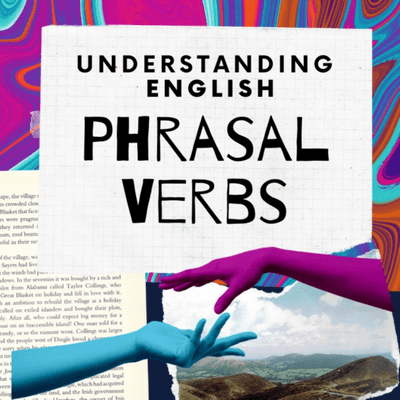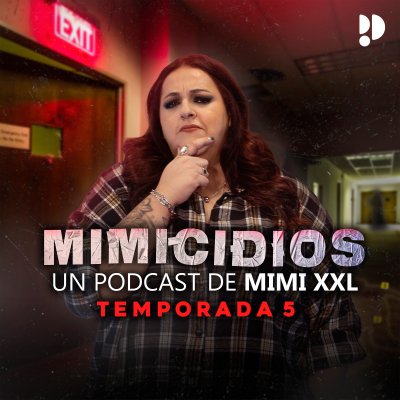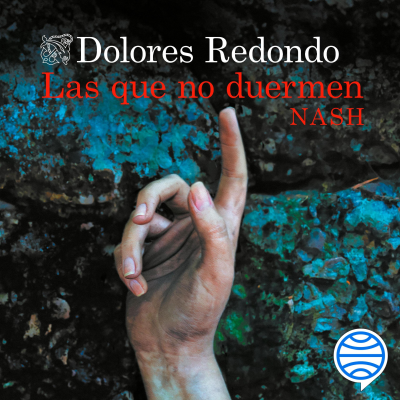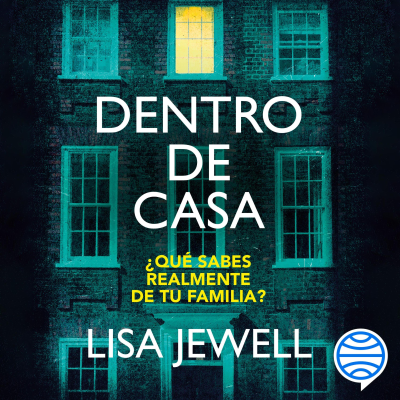
Understanding Phrasal Verbs
Podcast de English for Introverts
Why are English phrasal verbs so confusing? This podcast will answer that question, and show you exactly how to learn them and use them. Private Facebook community for introverted language learners: https://form.jotform.com/alyssapoco/facebook-group Support this podcast: https://podcasters.spotify.com/pod/show/phrasalverbs/support
Empieza 30 días de prueba
4,99 € / mes después de la prueba.Cancela cuando quieras.
Todos los episodios
9 episodiosWhat is a metaphor? You may be surprised to find out that it is NOT only something English teachers make you learn to write poetry! Metaphors are absolutely everywhere, and understanding them will be the #1 trick to understanding any phrasal verb you find *out in the wild.* This episode is only an introduction to metaphors. Be ready for more episodes where I go in depth with specific orientational metaphors (such as GOOD is UP) and how knowing these little ideas will make so many phrasal verbs make sense! I'm on Instagram @introvert.english if you have any questions. --- Support this podcast: https://podcasters.spotify.com/pod/show/phrasalverbs/support [https://podcasters.spotify.com/pod/show/phrasalverbs/support]
In this episode I give 5 good reasons to learn phrasal verbs, in no order. Actually, #5 is the one I want you to hear the most, oops! Links: Article- NPR- 5 Reasons Why We Code Switch [https://www.npr.org/sections/codeswitch/2013/04/13/177126294/five-reasons-why-people-code-switch] Video: What is Code Switching [https://www.youtube.com/watch?v=QNbdn0yuUw8&list=PLVjVOyKLiRj2Uty1U85S0Ha9_3uBPtrhY&index=48]Video: What is Code Switching [https://www.youtube.com/watch?v=QNbdn0yuUw8&list=PLVjVOyKLiRj2Uty1U85S0Ha9_3uBPtrhY&index=48]Introverted Language Learners Private Facebook Group [https://www.jotform.com/alyssapoco/facebook-group] 15 Introspective language learning journal prompts [https://form.jotformz.com/203267400219649] --- Support this podcast: https://podcasters.spotify.com/pod/show/phrasalverbs/support [https://podcasters.spotify.com/pod/show/phrasalverbs/support]
In this episode I explain the myth of business English and how it is related to phrasal verbs. I give a few examples (taken from the popular business English book, Market Leader, there are thousands of phrasal verbs you could use for business.) The examples: 1. Let's get down to business (start and focus) 2. Could you hang on a moment please? (wait) 3. Perhaps we could get back to the point. (return) 4. Ok, let’s go over what we’ve agreed. (review) 5. Right, to sum up then…(summarize) 6. I think we should move on now… (leave this point and continue) 7. Can we come back to that later? (return) Links and other things mentioned: Marissa's article about how to write a bilingual resume: https://relearnalanguage.com/bilingual-resume-examples-tips/ Canguro English video called 'Why Business English doesn't Exist.": https://www.youtube.com/watch?v=HmTzA8Jb_04 Private Facebook group for Introverted Language Learners: https://form.jotform.com/alyssapoco/facebook-group Marissa on Instagram @multilingualmarrisa Me on Instagram @english.for.introverts --- Support this podcast: https://podcasters.spotify.com/pod/show/phrasalverbs/support [https://podcasters.spotify.com/pod/show/phrasalverbs/support]
In this episode I discuss how important word stress is in English in general, and give you lots of examples. I give you more tips on how to know when someone uses a ~phrasal verb...if its really a phrasal verb or the NOUN version. The end of the episode also includes an exercise to practice your listening skills (to see if you can differentiate between nouns vs phrasal verbs.) In a nutshell: for most phrasal verbs, PUT THE STRESS ON THE SECOND WORD! The meaning changes if you put the stress on the first word. (My Argentinian intonation is coming through a lot in this episode. Yes, my native language is English! But just as you can pick up accents in new places, you can pick up intonations, EVEN SPEAKING A DIFFERENT LANGUAGE. Maybe its a whole attitude. Anyways, some of my speech patterns here are a little less US and a little more Argentina. :P If that sounds confusing to you, what I mean is, I literally sound Argentinian when I speak English sometimes. Follow me on Instagram @english.for.introverts Join our Facebook community of Introverted Language Learners: https://form.jotform.com/alyssapoco/facebook-group --- Support this podcast: https://podcasters.spotify.com/pod/show/phrasalverbs/support [https://podcasters.spotify.com/pod/show/phrasalverbs/support]
In this episode I cover some important concepts that will help you in your English journey, not only with phrasal verbs: 1. PHRASAL VERBS ARE NOT 'INFORMAL' 2. formality in English 2. ENGLISH IS NOT PRONOUNCED THE WAY IT IS SPELLED 3. Latin based words (formal, save for writing) and Germanic based words (perfect for spoken English.) I use a speech from Barrack Obama to illustrate how phrasal verbs are not informal, or slang. They are essential to sounding natural in SPOKEN ENGLISH. A list of German vs Latin words in English (Latin is formal and Germanic is normal.) : https://en.wikipedia.org/wiki/List_of_Germanic_and_Latinate_equivalents_in_English [https://en.wikipedia.org/wiki/List_of_Germanic_and_Latinate_equivalents_in_English] Note: this is not an exclusive list to be memorized, there are thousands and thousands of examples. Here is the speech by Barrack Obama that I shared, in the entire speech I counted 25 phrasal verbs in 16 minutes: https://www.youtube.com/watch?v=ueMNqdB1QIE&list=LL&index=24&t=0s Follow me on Instagram @english.for.introverts Join our Facebook community of Introverted Language Learners: https://form.jotform.com/alyssapoco/facebook-group --- Support this podcast: https://podcasters.spotify.com/pod/show/phrasalverbs/support [https://podcasters.spotify.com/pod/show/phrasalverbs/support]
Empieza 30 días de prueba
4,99 € / mes después de la prueba.Cancela cuando quieras.
Podcasts exclusivos
Sin anuncios
Podcast gratuitos
Audiolibros
20 horas / mes



















